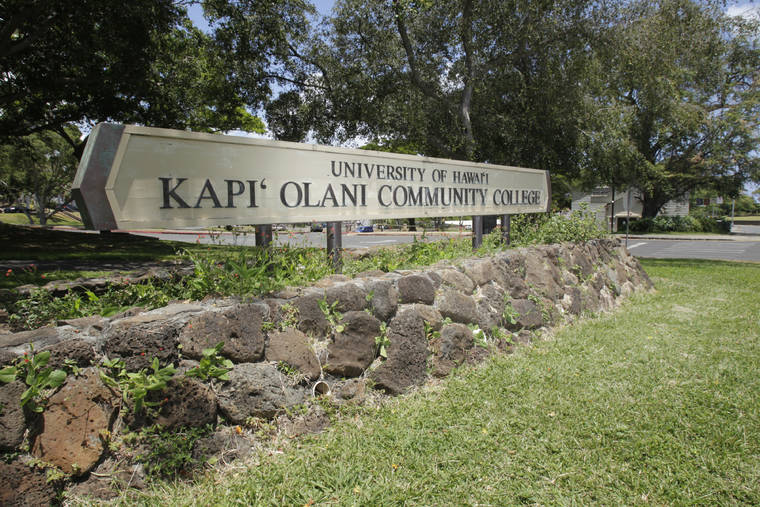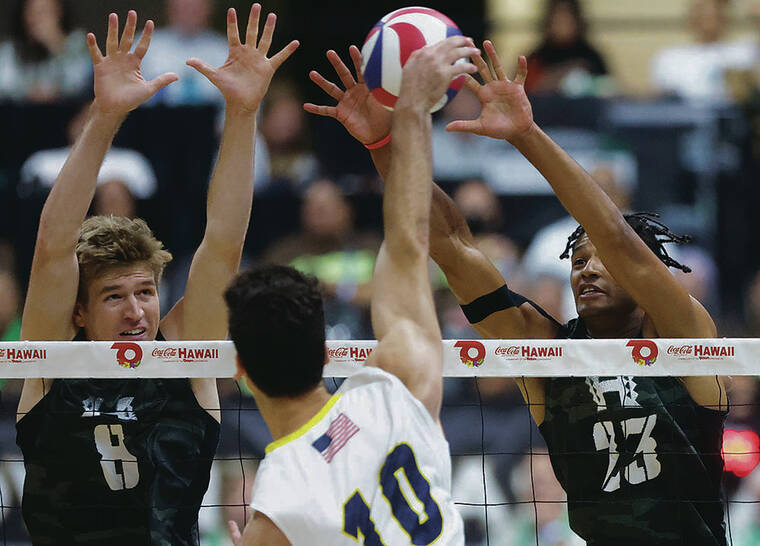Signs including hate speech removed from KCC campus

STAR-ADVERTISER STAFF / 2012
The Kapiolani Community College sign along Diamond Head Road in Kaimuki. The college staff acted quickly Thursday morning to remove signs that had been posted on trees, pillars and walls on campus with messages that appeared to malign certain groups.
Kapiolani Community College staff acted quickly Thursday morning to remove signs that had been posted on trees, pillars and walls on campus with messages that appeared to malign certain groups.
Administrators at the college said the perpetrators were caught on security cameras and could face consequences.
University of Hawaii spokesman Dan Meisenzahl declined to describe the content except to say they included statements with religious references that “could be seen as derogatory to certain groups of people.”
He said that the messages were printed on office paper and spread across campus, mostly in places where signs aren’t allowed.
“They were randomly placed anywhere,” he said. “They would have been taken down anyway. Beyond the messaging, you can’t just hang signs everywhere. We found them on trees and in the cactus garden.”
The signs were discovered early Thursday and appear to have been placed overnight. KCC’s office of the vice chancellor for administration sent an announcement to the campus community at 10 a.m.
Don't miss out on what's happening!
Stay in touch with breaking news, as it happens, conveniently in your email inbox. It's FREE!
“This morning our operations and security crew reported to work and ran into a number of derogatory signs, some that included hate speech,” the email said. “As I write this, we have dozens of employees and students combing the campus to remove the signs from bulletin boards, pillars, and other areas.
“On behalf of the campus administration, I apologize if you saw one of these signs before they were taken down,” it said. “Our goal is to remove hate speech graffiti, derogatory signs, and other contemptible language before other people see it, but we cannot catch everything.
“We have video of the perpetrators and will prosecute to the extent that the law allows us,” it concluded.
Aside from where the signs were placed, it wasn’t clear if the statements ran afoul of any rules.
“We have policies in place saying you can’t just post signs anywhere,” Meisenzahl said. “There are areas where you can hang messages and notices of events. We don’t want to impede on free speech.”
“I think the office of the general counsel at UH is taking a look at the content to see if it qualifies for hate speech,” he added. “I don’t think there were any imminent threats.”
Hawaii law includes a “hate crime” provision Opens in a new tab authorizing longer sentences if it can be proven that a person who committed a felony was motivated by the victim’s race, religion, disability, ethnicity, national origin, gender identity or expression, or sexual orientation.
There is no reference to “hate speech” in the Hawaii statute, according to Kit Grant, deputy director of the American Civil Liberties Union of Hawaii.
“The U.S. Supreme Court has said again and again that so-called hate speech is actually free speech,” she said.
Exceptions to free speech in the United States include obscenity, “true threats” and “fighting words” that incite an immediate breach of the peace, according to a 2014 report Opens in a new tab by the Congressional Research Service.





